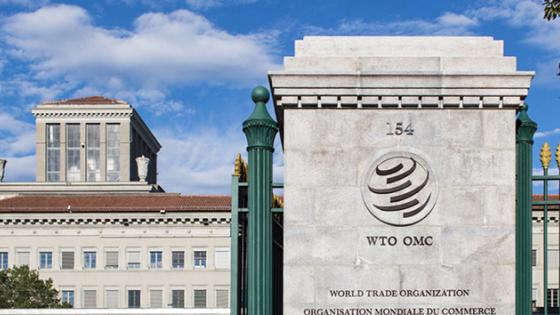And then there were … three. As a result of refusal by the US to agree to replace Appellate Body members as their terms expire, at the time of writing (August 2019) the Appellate Body has only three members, down from the full complement of seven members called for by the WTO Dispute Settlement Understanding. In December 2019, the Appellate Body will cease to operate if the US continues to block new appointments (Bown 2019).
The US delegation to the WTO has time and again expressed the view that its actions are simply guided by its desire to ensure that the Appellate Body performs the institutional role assigned to it in the agreement negotiated in the Uruguay Round. The US argues that the Appellate Body has not abided by its terms of reference and at times acted as if it were a principal instead of an agent.
Until recently, the main US issue with the Appellate Body was its long-standing grievance regarding the treatment of zeroing in antidumping investigations (Mavroidis and Prusa 2018). The current frontal attack against the Appellate Body adds a number of additional complaints, including the treatment of Chinese state-owned enterprises, the mischaracterisation of factual issues, disrespect of statutory deadlines, and whether Appellate Body decisions should have precedential value. Some of the critique seems meritorious to us, although it is striking that the US stayed quiet when similar issues arose in the past. It did not raise such critiques against panels behaving the same way.1
For some time, it was uncertain if the US was criticising the operation of the Appellate Body or had become disenchanted with the principle of two-stage adjudication, i.e. having an Appellate Body at all. In various statements it has clarified that it is not questioning what was agreed in the Uruguay Round (i.e., two-instance adjudication) but that it wants to see the Appellate Body abide by what was agreed in 1995 when the WTO entered into force. As we elaborate in a recent paper (Hoekman and Mavroidis 2019), going back to 1995 is easy. All it requires is political will to take the US seriously as opposed to arguing that the Appellate Body has done a fine job and investing most efforts into developing a ‘plan B’ for when the Appellate Body ceases to operate. The burden here is on the EU and other members. Simply agreeing that 1995 is the basis for moving forward will need to be complemented with measures to ensure that the new Appellate Body does not overstep its mandate. This may require the negotiation of some form of collective surveillance of its decisions, without politicising the judicial process itself. This needs careful design, but we believe this would help identify areas where WTO members either need to (re-)negotiate the substantive rules or agree that certain matters should not be addressed by the Appellate Body (Evenett and Fritz 2019, McDougal 2018).
We do not underestimate the importance of saving the Appellate Body. But agreement to ‘go back to 1995’ and putting in place a mechanism to make this credible will only ensure that the Appellate Body does not trespass on its mandate. This cannot (and should not) preclude the Appellate Body from confronting issues where there is ambiguity in WTO rules and commitments. Save the Appellate Body, yes, but this should be complemented with improvements to the process. Here, as in other areas of the operation of the WTO, revisiting working practices is part of the solution (Hoekman 2019).
Improvement is necessary on various fronts. An extensive academic literature routinely questions aspects of the output of both panels and the Appellate Body.2 WTO Members care about the result, not the reasoning. This is in line with the incentive structure of governments, which focus on the next election. A win before the WTO, or a vocal critique of an adverse report (even if sound), is what matters in this respect. Academia has a different outlook. The law and economics literature on the output of WTO adjudicating bodies focuses on the reasoning, the methodology used to reach an outcome. And this is where most of the critique is centred. It is the reasoning after all that will help firms and governments predict the resolution of a potential dispute. Adjudicating bodies, in addition to respecting their mandate/jurisdiction as desired by the US, must provide legal certainty in the sense that decisions on similar matters are arrived at irrespective of the identity of parties involved at different points in time.
Saving the Appellate Body is not sufficient. WTO Members need to save the Dispute Settlement Understanding. With this in mind, we suggest four priority areas for reform:
- Improve the quality of panel reports by increasing the use of economics. The Appellate Body is limited to matters of law. Panels are tasked with establishing the facts. Often the facts are complex and technical know-how is called for. The task of the adjudicating bodies inevitably involves some discretion in interpreting terms like ‘less favourable treatment’ (‘legalese’ for discrimination). These are not clear-cut terms. They require informed judgement and often would benefit from economics input. Use of economics should not be a matter of discretion for panels. Complicated matters, such as determining causality (e.g. the apportionment of injury caused by increased imports) or the existence of price suppression are now dealt with in a haphazard manner. Econometric and non-econometric indicators to determine the relevant product market (what is a ‘like product’?) are treated as equally plausible by panels. Institutionalising the supply of economics expertise into the dispute settlement process would enhance the quality of panel reports. Changes in case law informed by new economic insights is a standard feature of competition law and policy. An example is the shift in approach towards vertical restraints of competition, with the Supreme Court changing its view on resale price maintenance from a per se to a rule of reason standard, informed by economic arguments (Brunell 2007). We need more of this dynamic in trade law.
- Improve the quality of panellists and Appellate Body members. The WTO Membership needs to have an ‘A team’ addressing disputes. With some notable exceptions, the majority of those selected to settle disputes are not deeply knowledgeable about trade and WTO law. Very few have had exposure to economics. One step to enhance the quality of the panel process is to move away from an ad hoc selection of panellists and agree on a permanent roster. The WTO Membership should not find it difficult to make a list of 20-25 experienced individuals to serve for a fixed term.
- Reduce the politicisation of appointments. Another area for reform is to reduce the scope for horse-trading by stakeholders. Today WTO Members act as both gatekeepers and as nominating parties for Appellate Body appointments. They should abandon one of the two functions. The EU has in place a committee of experienced judges to scrutinise nominations by EU member states for appointments to the Court of Justice of the European Union. A similar process should be introduced in the WTO for the Appellate Body.
- Change the modus operandi of dispute settlement. Bringing in an ‘A team’ to resolve disputes should be accompanied with rethinking the current agency design. The WTO Legal Affairs Divisions should be advising the Membership on all matters covered by the WTO, as opposed to having the exclusive competence to provide support to panellists and Appellate Body members in doing their work. Panellists and the Appellate Body should be provided with budgets for fixed-term contracts to bring their own clerks with them. This will attract law students and over time expand available expertise on trade law and policy. It will also reduce concerns that the Secretariat currently has too big a role in the dispute settlement process.
References
Bown, C (2019), “The 2018 trade war and the end of dispute settlement as we knew it”, VoxEU.org, 13 June.
Brunell, R (2007), “Overruling Dr. Miles: The Supreme Trade Commission in action”, Antitrust Bulletin 52(3-4): 475-529.
Evenett, S and J Fritz (2019), “Jaw, jaw not war, war: Prioritising WTO reform options”, VoxEU.org, 13 June.
Hoekman, B (2019), “Urgent and important: Improving WTO performance by revisiting working practices”, Journal of World Trade 53(3): 373-94.
Hoekman, B and P C Mavroidis (2019), “Burning down the house? The Appellate Body in the centre of the WTO crisis,” European University Institute Robert Schuman Centre for Advanced Studies working paper 2019/56.
Mavroidis, P C and T J Prusa (2018), “Die another day: Zeroing in on targeted dumping – Did the AB hit the mark in US-washing machines?”, World Trade Review 17: 239-64.
McDougal, R (2018), “The crisis in WTO dispute settlement: Fixing birth defects to restore balance”, Journal of World Trade 52(6): 867-96.
Petersmann, U (2019), “How should WTO members react to their WTO crises?”, World Trade Review 18(3): 503-25.
Endnotes
[1] Petersmann (2019) and McDougal (2018) provide detailed discussions of US claims and possible responses by the WTO membership.
[2] An example is a long-standing project that teams up legal scholars and practitioners with trade economists to assess the annual case law of the WTO. The World Trade Review publishes these case studies each year in a special issue. The papers are available at: http://globalgovernanceprogramme.eui.eu/wto-case-law-project/.



